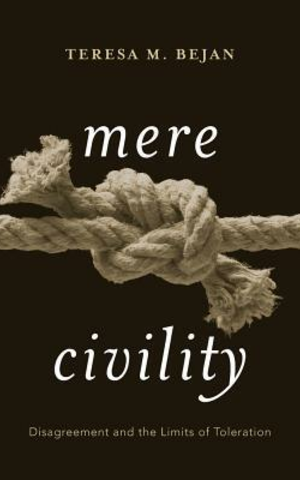
Mere Civility: Disagreement and the Limits of Toleration
- Book
- Jan 2, 2017
- #Philosophy #Politics
Today, politicians and intellectuals warn that we face a crisis of civility and a veritable war of words polluting our public sphere. In liberal democracies committed to tolerating...
Show More
Number of Pages: 288
ISBN: 0674545494
ISBN-13: 9780674545496
Mentions
See All
Greg Lukianoff @glukianoff
·
Mar 21, 2022
- Curated in Free Speech Culture
If you’re unfamiliar with the ancient Greek concepts of isegoria & parrhesia, or you’re unaware of the impact that Rhode Island founder Roger Williams had on the American model for free speech, go pick up a copy of @tmbejan’s great “Mere Civility.”